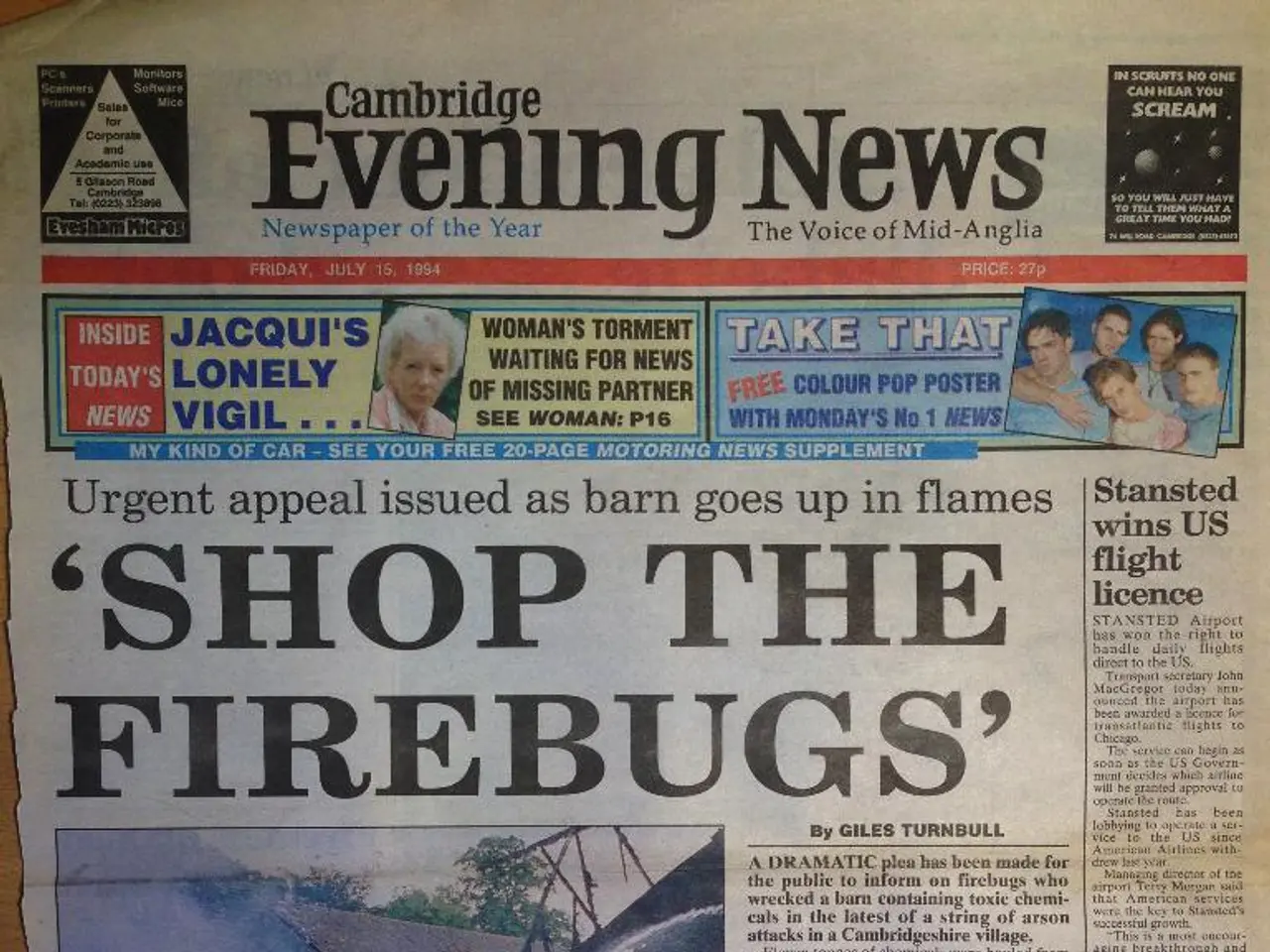Federalization of Washington, D.C.'s Police Force: A Closer Look
Intensified police presence in Washington DC under Trump's orders leads to 23 initial arrests, with an additional 850 officers reinforcements and the deployment of National Guard troops.
In a recent development, the National Guard has been called in by the President to Washington, D.C., marking a significant shift in the city's law enforcement. This move comes as part of a broader effort to address rising crime rates and maintain order in the capital.
The federalization of a city's police force, as seen in the case of Washington, D.C., involves placing local law enforcement under federal control for "federal purposes." This is governed by specific legal provisions, such as the DC Home Rule Act of 1973 and Section 740, which empowers the President to use the Metropolitan Police Department (MPD) for federal purposes during special conditions or emergencies.
Under the DC Home Rule Act, the President can declare a state of emergency, invoking Section 740 to take control of the MPD. Initially, this control lasts for a short period, typically 48 hours, but can be extended to 30 days with congressional notification. Any extension beyond 30 days requires a joint resolution from Congress, a process subject to legislative procedures.
The deployment of federal forces may involve additional federal law enforcement personnel and National Guard troops to assist in maintaining order. The approach aims to integrate federal and local law enforcement efforts, potentially leading to a significant increase in policing presence.
However, the federalization can significantly alter the balance of power between local and federal authorities, raising concerns about individual rights and local governance. There is a possibility that the federal government might seek to extend control beyond the initial period, setting a precedent for future interventions.
The action is controversial, with legal challenges and political opposition, particularly concerning the justification for declaring an emergency and the potential erosion of local autonomy. Critics argue that diverting federal resources to D.C. could detract from other national priorities, potentially impacting overall national safety.
In the past 30 days, the National Guard has made 23 successful arrests, including homicide, firearms, and possession with intent to distribute. Approximately 850 officers and agents were surged across the city to support these efforts.
Notably, the National Guard was previously deployed to DC during President Biden's inauguration in January 2021, following the Capitol riots on January 6, 2021. Over 25,000 National Guardmen were stationed across DC to ensure the safe transition of power. Around 2,000 guardsmen remained in the capital until May to keep the peace of the city.
The Trump Administration is currently under scrutiny for deploying the National Guard and Marines in California earlier this year, leading to a lawsuit by Democratic governor Gavin Newsom. California argues that the President is targeting left-leaning states, a claim the Administration denies.
As the situation continues to evolve, it is essential to monitor the implications of this federalization on Washington, D.C., and its residents. The President has confirmed that the DC police department is now under federal control, and the National Guard and federal law enforcement continue to work together to maintain order in the city. However, the legal and political implications of this move remain a topic of ongoing debate and discussion.
Read also:
- Court petitions to reverse established decision on same-sex marriage legalization
- Proposed Standardization of Food Labeling Laws Among Member States by the Commission
- Commemoration of 200 Days of American Resurgence Unveiled
- Minister Bärbel Bas expresses doubts about her tenure as a minister following a recent interview during the summer.








